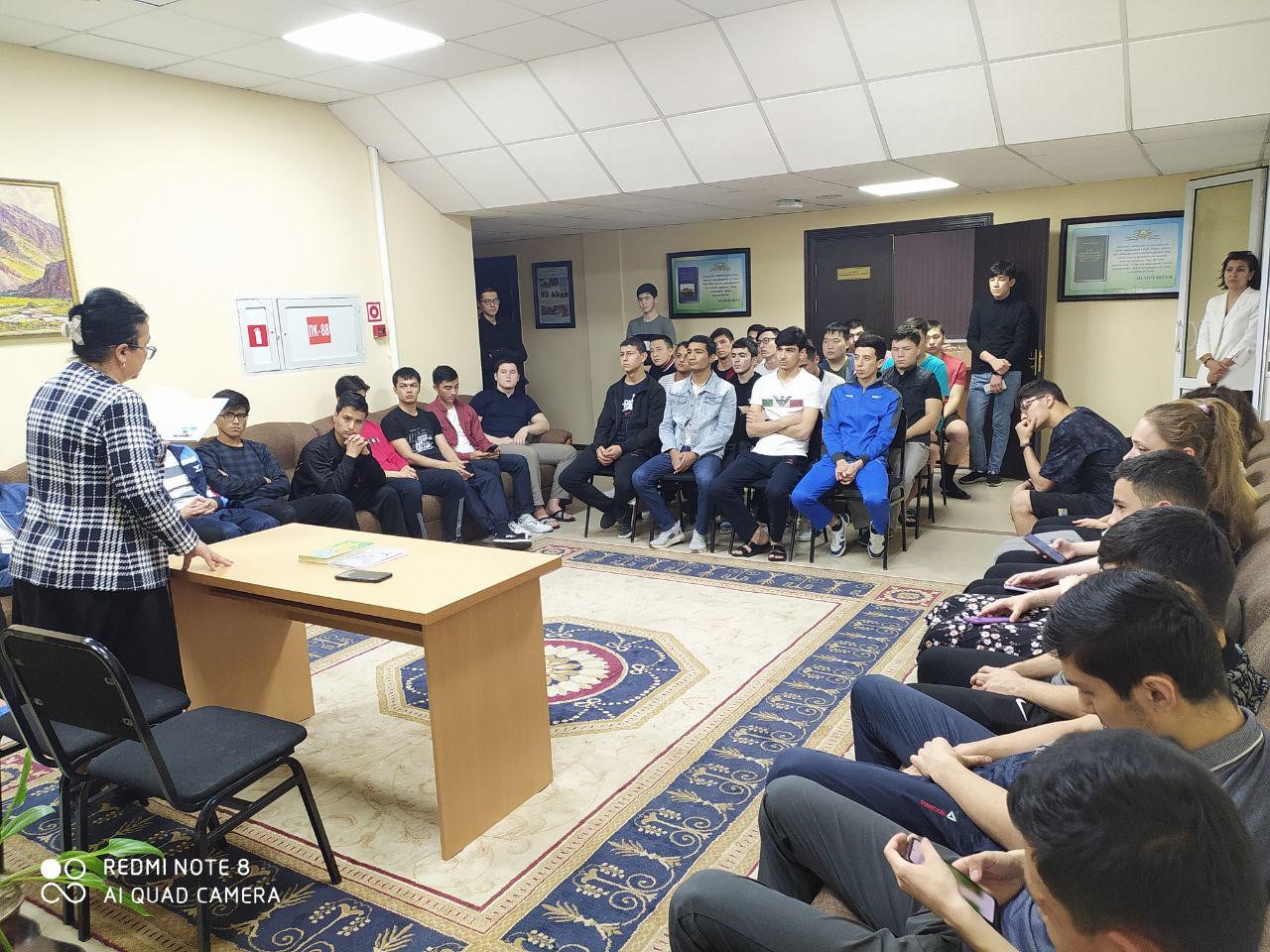AMIR TEMUR - THE GREAT COMMANDER AND STATE MAN
On April 5-8, 2022 a conversation dedicated to the life and work of the outstanding commander and statesman Amir Temur was held in the student dormitories of the Branch of Russian State University of Oil and Gas (NRU) named after I.M. Gubkin in Tashkent. The faculty of the departments “Social and humanitarian disciplines” and “Professional disciplines”, representatives of “Manaviyat and marifat” department, students participated in the event.
This conversation was dedicated to the 686th anniversary of the great commander, interest in his personality took root in the hearts of not only the Uzbek people, but the whole world. In her speech, Azizakhon Abdullajovna especially emphasized that Amir Temur is the founder of a strong centralized state, the patron of science and culture. To understand the great Sahibkiran means to understand ourselves, to preserve historical memory, deep national roots, culture and rich spiritual heritage. During the lifetime of Amir Temur, a special essay was written on public administration, known as “The Code of Temur”. This is a truly valuable set of laws of the Middle Ages, consists of two parts. It contains the biography of Temur and the events connected with his life, views on the art of war, the arrangement of life and the government of the country. Subsequently, it becomes a historical concept for the creation of a centralized, controlled powerful state. Having created a huge power, Amir Temur prepared the conditions for the economic and cultural development of the country. The age-old traditions of past eras were revived in a new historical context.
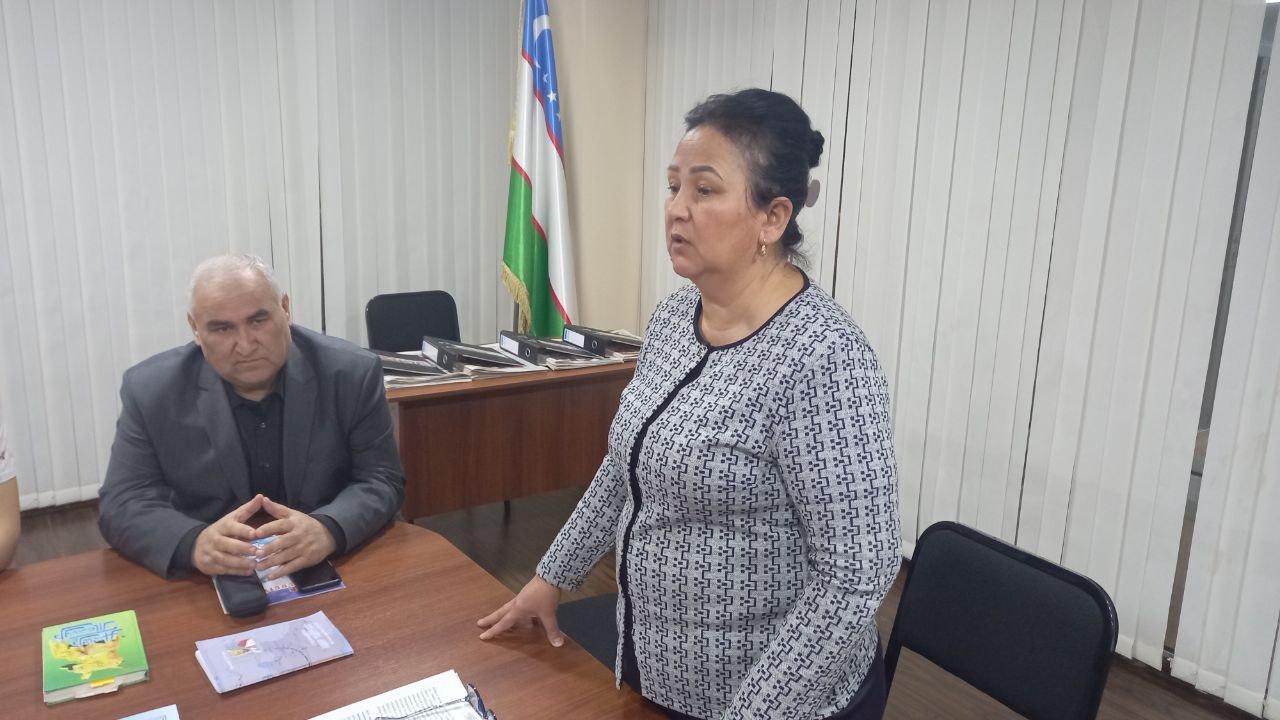

In addition, a senior researcher of the State Museum of the History of Temurids Komiljon Sultanov participated in the meeting. He reminded the audience about how Maverannahr in those days turned into a center of trade, economy and culture of the Near and Middle East, the ancient cities of Samarkand, Kesh, Bukhara, Termez were landscaped, Tashkent, Merv and others, completely destroyed by the hordes of Genghis Khan. Under the auspices of Amir Temur, majestic buildings of mosques, madrasas, mausoleums, caravanserais were built. It has become commonplace that every victory or event is immortalized in architecture. In his construction activities, Amir Temur pursued certain political goals - the structures he erected were supposed to demonstrate the strength, power and greatness of his empire. During the years of his reign, Amir Temur put an end to feudal fragmentation, established trade and diplomatic relations with the largest kingdoms of Europe - France, England, Castile.

In her speech, Shakhnoza Abduvalievna noted that history puts Amir Temur on a par with such major commanders as Alexander the Great, Darius the First, Julius Caesar. He successfully united Maverannahr and annexed Ferghana and the Shash oasis to the already existing territories. In his campaigns, he defeated such rulers as Kamar ad-Din and Anka Turu from Mogolistan, Tokhtamysh from the Golden Horde, Bayazid I from the Ottoman Empire. He ruled the state for thirty-five years. Over the years, he undertook many military campaigns, won victories in major battles, conquered many countries, created a huge empire, the borders of which stretched from China and India to the Caspian Sea, from the Aral Sea to the Persian Gulf.
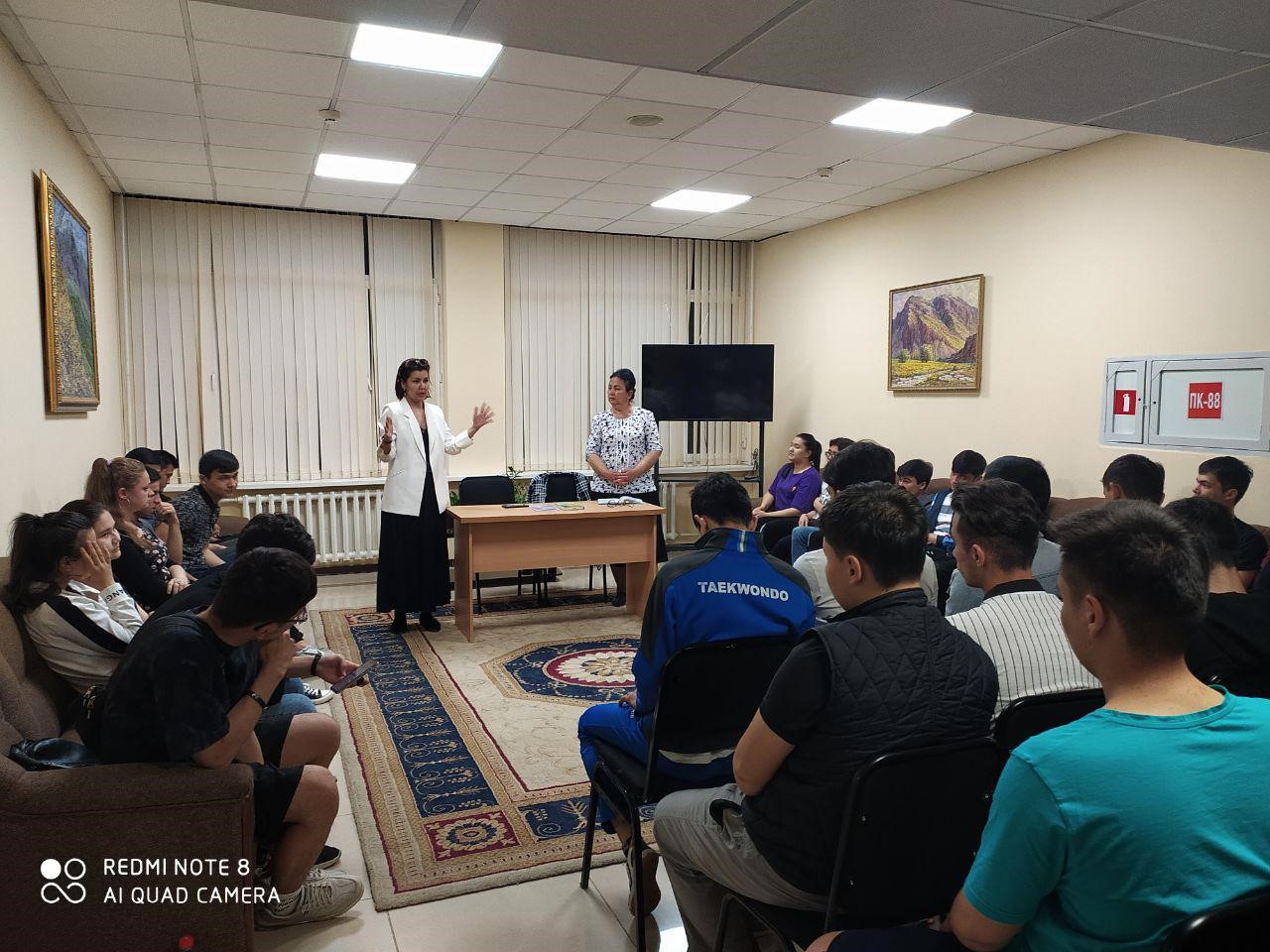
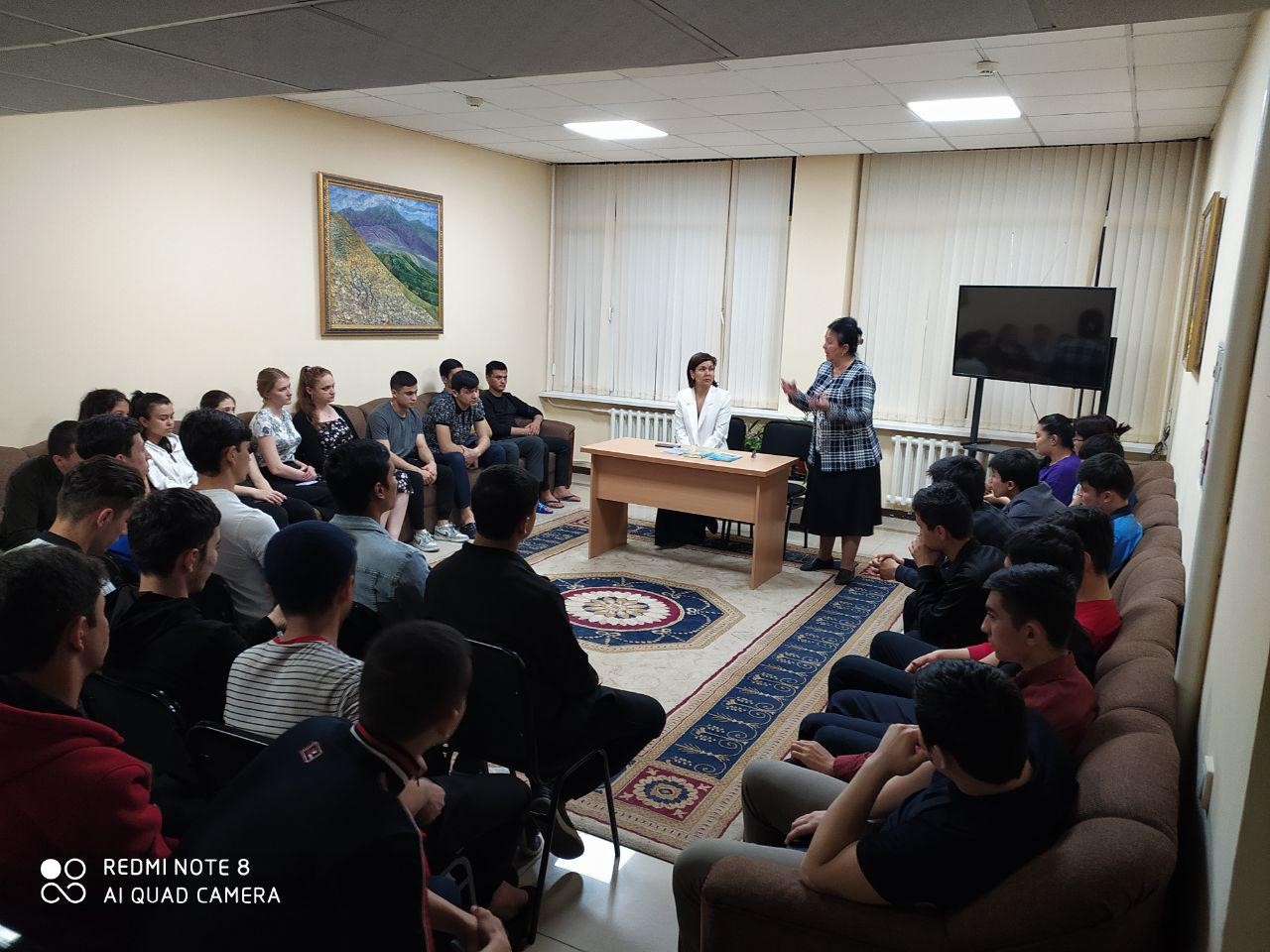
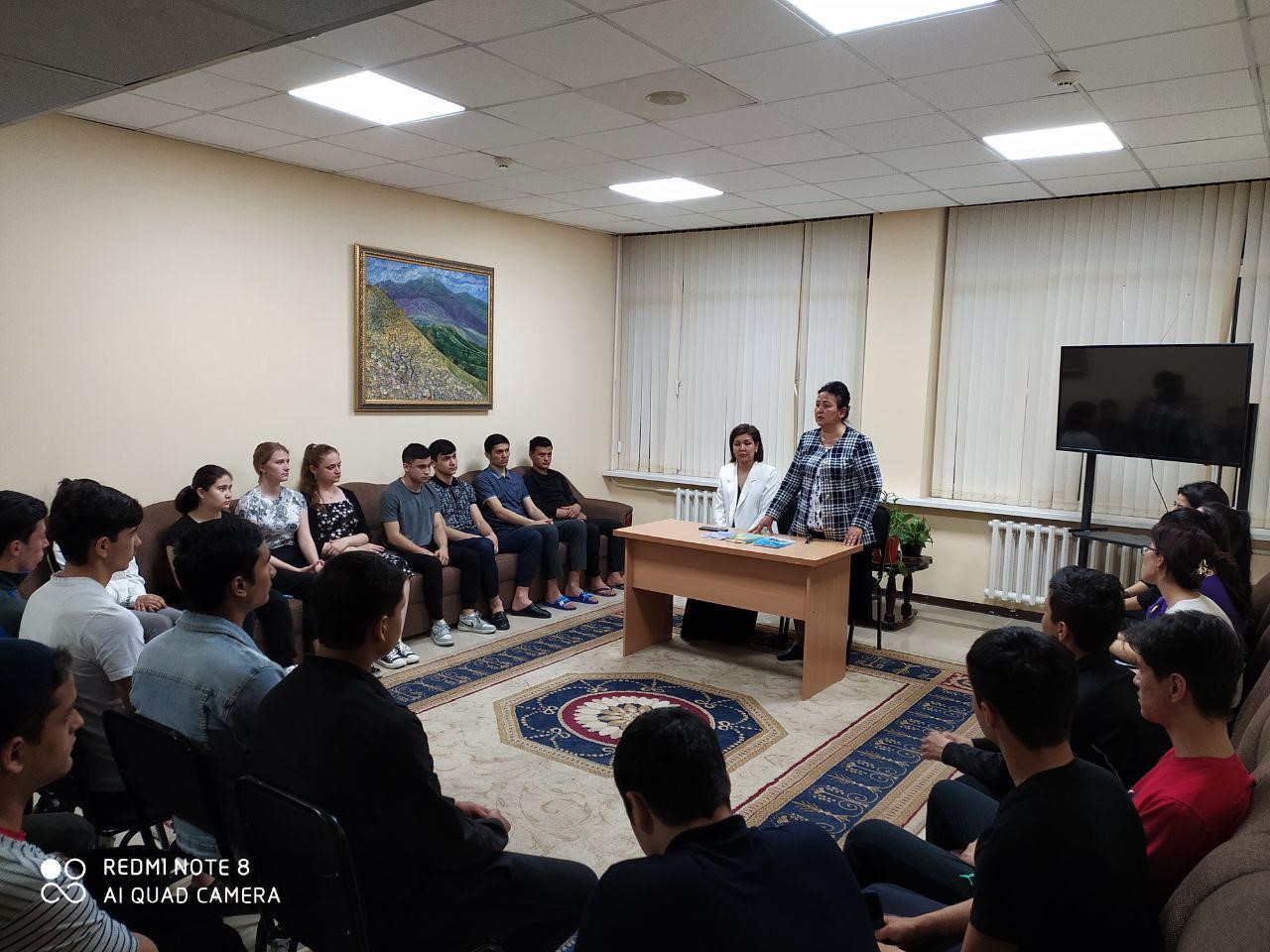
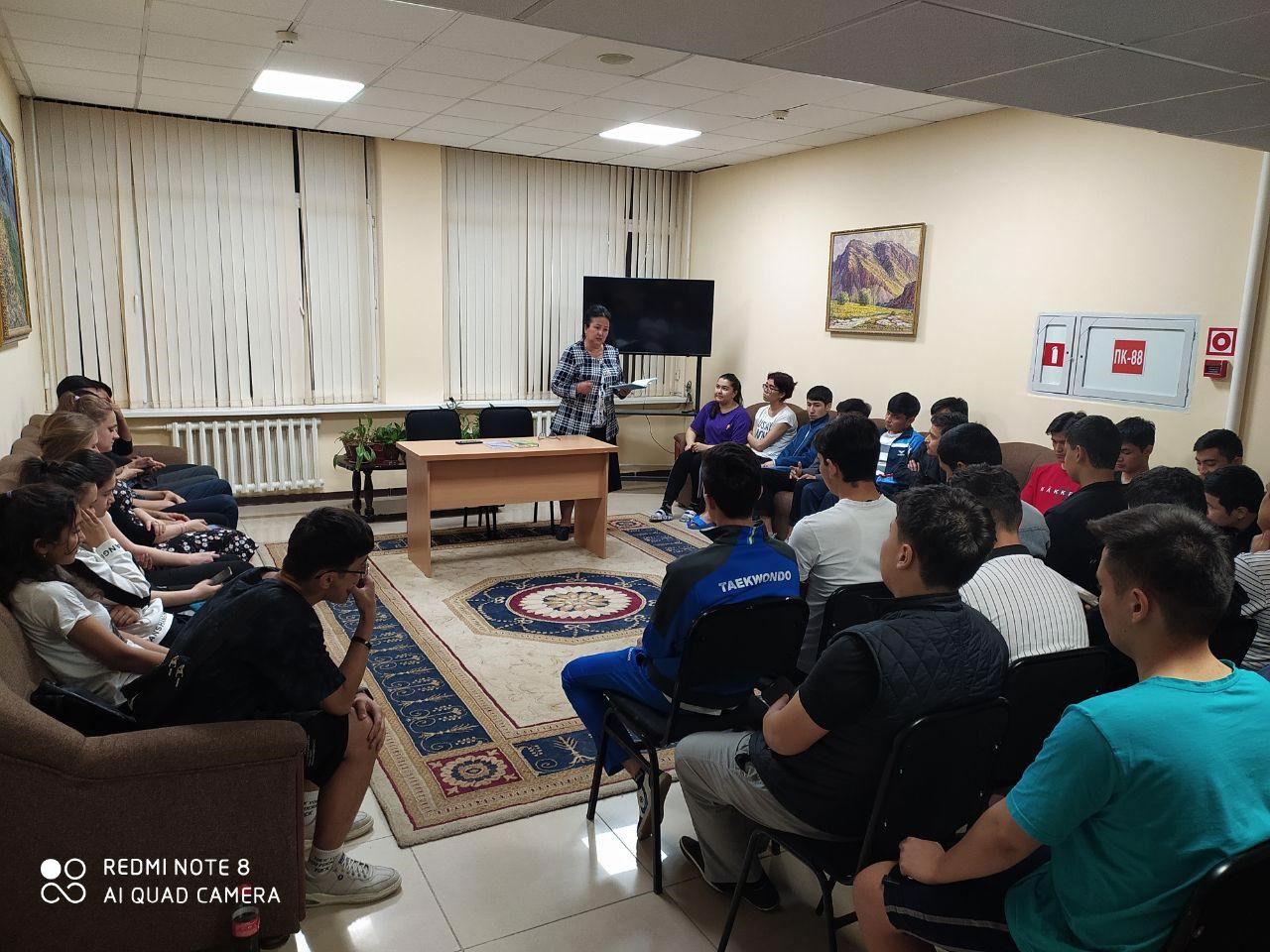
At the end, the students asked questions about the topic. Fragments from the annals of the great commander’s military campaigns and conquests were heard. The students shared their impressions of the books they read dedicated to the memory of Sahibkiran.
